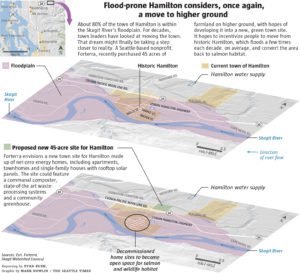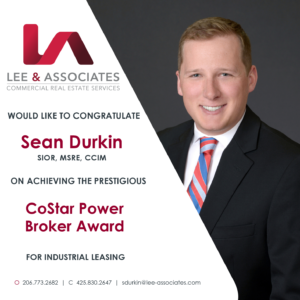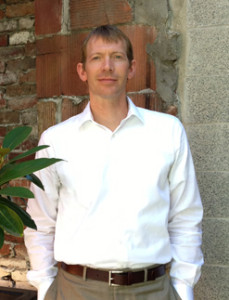Take advantage of all of the great opportunities that these programs provide: mentorship, networking, access to industry leaders who are always happy to hop on a call or meet for coffee.
Category: Alumni
Remembering Jon Runstad: A Philanthropist and Real Estate Visionary
The Runstad Department of Real Estate is deeply saddened by the loss of Jon Runstad ’64, a prominent figure in the real estate industry and a dedicated philanthropist.
Empowering Change: Runstad’s Commitment to Diversity in Real Estate
The Runstad Advisory Board has developed several committees focused on supporting the Runstad Department of Real Estate’s students, faculty and programs. One of these committees, the Equity, Diversity and Inclusion Committee, is dedicated to helping create a future where equity is embraced so that the real estate industry and built environment reflect the rich diversity of people in the community.
This past academic year, the department and board members participated in some great events to help push the goal of moving the industry toward inclusion and equity. In February 2023, the Runstad Department of Real Estate and Foster School of Business held their annual symposium, “Hacking Inequity in Access to Real Estate Capital: Best Practices and New Options”. This year the event was also co-sponsored by Urban@UW and Urban Land Institute. After the keynote’s address, attendees heard from two panels: one focused on the experiences of developers seeking capital, and the other on the experiences and advice of capital providers. This year’s symposium was a follow up to the panel discussion on EDI in real estate capital investments that was held at the Autumn 2021 Runstad Advisory Board Meeting.
Board member Brian Surratt, was a leading force in the Housing Equity Accelerator program (HEA) this past year. Local Initiatives Support Corporation (“LISC”) partnered with Amazon to increase the supply of affordable housing and support the growth of emerging developers of color in Puget Sound. This work can help build capacity to create more affordable units and forge opportunities to generate equity and inter-generational wealth. Many Runstad Advisory board members and Master of Science in Real Estate alumni volunteered their time and service. Jaebadiah Gardner (a fellow of the program), Peter Orser, Andrew Hunt, McKenzie Darr and Kristin Ryan served as Business Advisors, program advisors and expert panelists. Diane Sugimura served as program facilitator for the year long program with 13 graduates.
Lastly, we want to thank George Northcroft for working with ULI to shape the February event, “10 Principles for Embedding Racial Equity in Real Estate Development,” and sharing the opportunity for our students to attend. ULI’s Building Healthy Places Initiative published “10 Principles…” as a guide for developers, investors, and other practitioners in making racial equity an important part of their real estate practice. Taidgh H. McClory, one of the contributors to the report, presented the 10 principles, following George’s impassioned history of racial issues in the real estate industry. George also moderated a “fireside chat” with Taidgh and Jaebadiah, before attendees broke into small groups to discuss the principles and their commitments to initiate change in their work.
We are thankful and excited about the work that was accomplished this year by the EDI Committee, and sincerely thank the committee for their service. We look forward to more progress happening in the years to come.
Professor Sofia Dermisi co-authors new book, Professional Real Estate Development
The Urban Land Institute published the 4th edition of the Professional Real Estate Development, co-authored by Professor Sofia Dermisi. Dermisi holds a joint appointment between the Department of Real Estate and the Department of Urban Design and Planning.
Be Nimble – and Never Stop Learning
Corbin personifies the breadth of the real estate field and the many career paths that wind through it. He came to Seattle to study Studio Art and International Political Economy, wound through managing sales teams at an action sports retailer, and landed at UW pursuing dual Masters’ degrees in Architecture and Real Estate.
Bringing Passion and Skill to Community Development
Genevieve recognized early on how powerfully the built environment shapes social communities, including impacts on health outcomes, equitable access to economic opportunity, environmental sustainability, and livability. Through the Runstad Department, she obtained 3 internship positions in the affordable housing/community development field at Bellwether Housing, Enterprise Foundation, and Beneficial State Bank.
Floods have ravaged Hamilton for over a century. Can outsiders persuade the town to move?
A recent article highlighting the development project being led largely by MSRE alum Rebecca Bouchey.

Link to New York Times article here.
MSRE alum, Sean Durkin, achieves the CoStar Power Broker award.
Lee & Associates Principal, Sean Durkin, SIOR, MSRE, CCIM, achieves the prestigious CoStar Power Broker award, one of only ten brokers to achieve it in the Seattle/Puget Sound Industrial Leasing category.

Link to LinkedIn Post
Alumni Highlight: Zachery Clements
Ask Zachery Clements how he feels about his experience as a Runstad student and the answer is as compelling as it is easy: “Fortunate and grateful for the opportunity and the timing.”
Zach, now working with Dunn & Hobbes, a Seattle-based investor and developer of urban infill mixed-use projects, says the greatest value of being in the Runstad program was the regional real estate community exposure, support, and connections fostered by the folks at the Center (and beyond) — leading to one-on-one conversations with people to get advice, recommendations, and mentorship. Paying it forward, Zach says, “Nearly 100% of people that I’ve reached out to have responded and been willing to meet, talk and share. I’m trying my best to continue that practice.”
In fact, what surprised him the most was the sheer number and value of connections leading from the real estate community and Runstad support network. “There are too many to list or count, from instructors to colleagues to other RE professionals through various channels, including the mentorship structure within the program, as well as bringing those professionals in to instruct portions of classes.
“The experience enabled my dream,” Zach has said, “acquiring the knowledge and skills necessary to operate, contribute and add value to those people and companies I’ve been lucky enough to work with.” While he fully acknowledges there remains much more to learn and do, he is enjoying the process and opportunities that have been presented to him.
With a background in environmental consulting, he initially approached the MSRE program with the idea that he’d be working for a smaller, urban infill development firm, to acquire and develop “brownfield” properties, and that is exactly what he’s doing. “I had the notion that I wanted to practice brownfield redevelopment, but didn’t have the skills to understand the financial and feasibility sides of the field. I had a few connections in my network at the time, but had no idea how to gain the skills I needed or where to go to get them.” He realized immediately he’d discovered what he was looking for when he found the Runstad program.
Working for Dunn & Hobbes, a Seattle-based investor and developer of urban infill mixed-use projects, presents a lot of challenges and opportunities to learn and grow and continue to hone his real estate skills. No day is like the last — Zach’s days are “fresh and exciting and fast-paced.”
“I would not have been able to do this without the dedication of everyone who is a part of the MSRE program. It gave me the opportunity to jump into this world and provide some value.”
Fine words, Zachery Clements.
